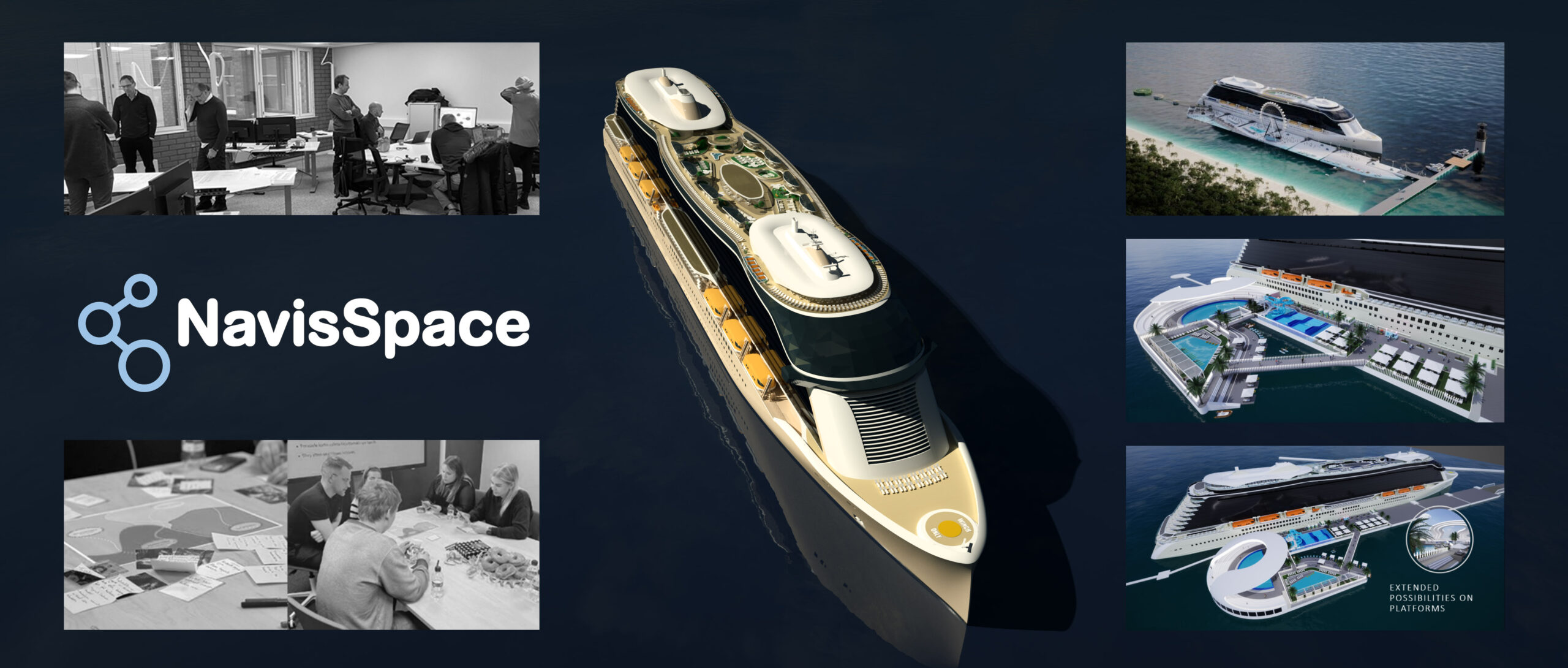Project presentation: NavisSpace
MEYER, Kone, Kudos, SeaKing, Åbo Akademi, Aalto and PBI Research Institute joined their forces in the NavisSpace co-innovation project to develop new and open collaboration models. The aim was to accelerate research and design efforts focused on making ships more sustainable and improving the passenger experience.
“Our focus has been on development work taking place several years before a ship contract. When radical conceptual design changes are needed, we must start at the right time and with the right team”
Janne Andersson, MEYER Turku Oy
Combining the expertise from carefully selected partners in the very early concept design phases of a new cruise ship is likely to produce valuable deliverables to the cruise lines. NavisSpace offers a valuable opportunity to its member companies to showcase their concepts, products and services to the cruise industry. The deliverables are distinguished as comprehensive solutions that incorporate expertise and contributions from both the research network and the companies involved.

Looking ahead, cruise ships will become more sustainable through new alternative fuels, cutting-edge energy saving technologies and more sustainable building materials. Other contributions include designing lighter and more compact ships, improving public space utilization and introducing innovative operational options.
“By adding 20% more staterooms to a 140 000 GT vessel, we were able to cover the estimated higher fuel cost of e-methanol. Understanding the bigger picture of new earning potential such as new passenger activities and hotel-supporting functions placed on floating platforms will widen our thinking and create flexibility to adapt to a more sustainable future”
Joakim Sjöblom, PBI
Adding more automation to horizontal and vertical logistics, along with creating new optimized and centralized galley designs, will reduce the cruise ship’s crew needs. NavisSpace is also committed to further researching passenger experiences and expectations among younger generations. By incorporating this research into early concept briefings, the project ensures that future passengers can look forward to new, exciting and more environmentally friendly experiences.
Back to news